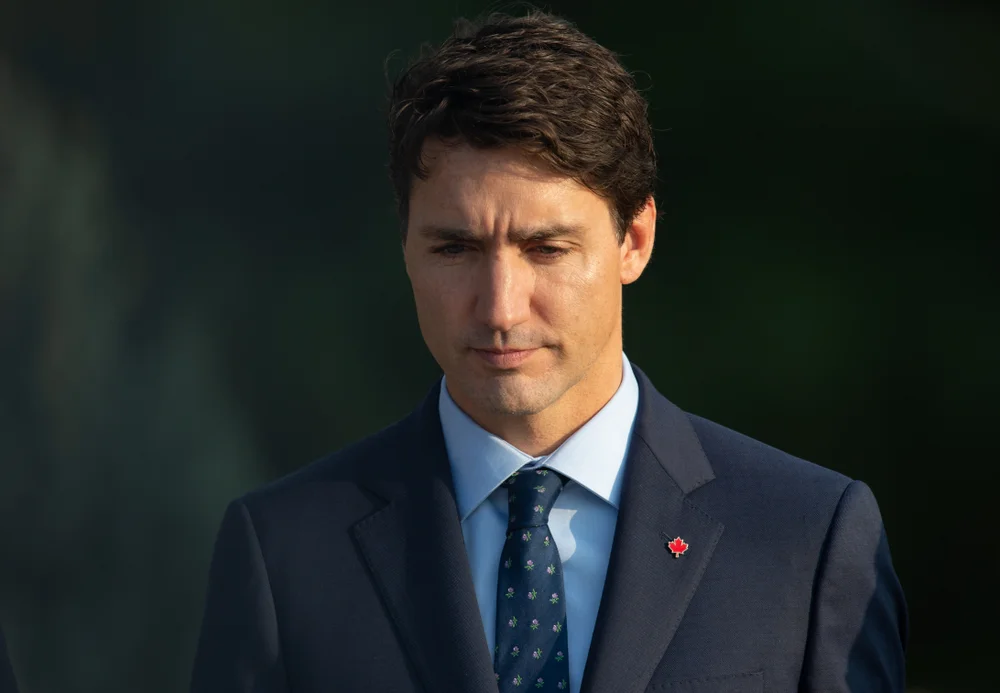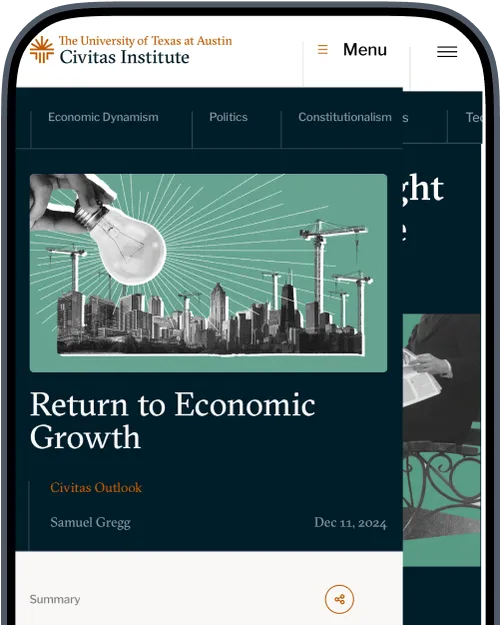
Fire, Wind, and California
Will it mark the end of Progressive dominance in California?
As the fires in the Los Angeles area are slowly brought under control, the toll of devastation is all too plain: 24 dead, 12,000 structures destroyed or damaged; 300,00 people already evacuated, with more to come; power losses for 100,000, and financial losses estimated at $50 to $100 billion. To make matters worse, private insurance companies saw the tinder box erupting and largely were able to put the liability on homeowners throughout the state, who are asked to back up California’s Fair Plan, which has about $2 million in cash and $2.5 billion in reinsurance, a rounding error on those financial losses, such that the entire system could collapse. Even the real estate losses might be dwarfed by consequential damages from the closures of schools, churches, and theaters, the shutdown of ordinary businesses, the dollars and sweat that property owners, many of whom are people of highly limited means, most notably black families in Altadena, need to spend on homes and to reorganize their lives, the shutdown of business activities throughout the region, the loss of tourism, emigration and the costs of sorting out the ensuing liabilities and legal reforms. Most losses will lie where they fall.
The enormity of the losses gives rise to an impassioned discussion about its causes. Supporters of the governor are quick to point to global warming as the dominant cause and thus urge that “we must stop burning fossil fuels and use controlled burns to reduce available kindling.” There are two problems here. Fossil fuels are irrelevant, and controlled burns are insufficient. To understand the intellectual foundations, one must go back to basic conceptions of responsibility that developed in tort law for centuries. The first principle is that natural events, once called acts of God, are not the responsibility of any human being. Thus, if a bolt of lightning strikes a person, no one else is responsible. But to this rule, there is a significant exception under the somewhat misleading title of proximate causation, which dates back to a maxim of Francis Bacon: “in jure non remota causa sed proxima spectator,” which translates as, “In law, one looks to the near cause, not the remote one.” The impulse here was to rule out “too remote” events. But the great vice of that maxim is that it assumes that there is only one cause for an event, when there are often more so that the word proximate conveys precisely the wrong impression. The correct analysis, which the case law mostly follows, starts with the immediate cause, that bolt of lightning, and then asks whether, looking back, there is any human action that created the dangerous condition that the lightning triggered. Thus, if the golfer is wearing metal shoes or carrying a metal umbrella, those antecedent acts count as a source of responsibility, unless it could be shown that the bolt was so strong that it would have killed even if neither of these missteps had taken place.
So, in Los Angeles, not building fire breaks counts as a proximate cause unless the fire would have leaped the break, which often happens with high winds. However, it is a fallacy to assume that if one human intervention fails, others will be irrelevant as well. And on this point, it is cold comfort for Newsom to say that “California leads the nation in environmental stewardship,” when the carbon dioxide emissions from the fires more than offset any reduction in emissions by various regulatory programs, even before 2020.
No surprise here. California always has a sure knowledge of future disasters. Wet and dry seasons have alternated in California in saw-tooth fashion long before anyone raised the specter of global warming, as this chart reproduced in the Wall Street Journal shows dating back to 1895. This predictable alternation requires active management to remove the wet growth as kindling before the dry season arrives. But California has long adopted a passive strategy on just this point, having learned nothing about land management from the major fires in Northern California. As far back as 2017, Congressman Tom McClintock warned “we are running out of forests to save.” His indictment of federal and state environmental regulation is as pertinent today as then. The government sees only a single use for trees where logging and timber sales are prohibited to allow an accumulation of deadwood that fires can strike. In addition, in the Pacific Palisades, the Santa Ynez reservoir, built to supply extra water in the event of fire, was left completely empty; the Los Angeles budget for fire-fighting equipment was slashed; the communications system linking police and fire proved inadequate under the strain, at which point the private sector in the form of Starlink, courtesy of Elon Musk, finally gave all first responders a system to replace the archaic public system of communication.
So, at this point, the global warming defense is a poor excuse for self-examination of the devastation brought about by progressive politics in Los Angeles, whose much excoriated Mayor Karen Bass’s dual sins were, as Bill Maher fulminated, running off to Ghana when told of the fire risk and giving first priority to DEI over disaster preparedness. Nor did it help when she remained mum on her return.
So she and Gavin Newsom have a lot to answer for, but at this point, the law throws a major monkey wrench into the system. At both the federal and state levels, powerful rules make it hard to sue any government or public officials even for their gross dereliction of duty. The pattern was set as early as 1954 when the Federal Torts Claims of 1947 removed the defense of sovereign immunity—that had long blocked citizen suits against the federal government—subject to this large exception “based upon the exercise or performance or the failure to exercise or perform a discretionary function or duty on the part of a federal agency or an employee of the government. whether or not the discretion involved be abused.” In 1954, the Supreme Court, in Dalehite v. United States, held that this exemption protected the federal government from large liabilities from a massive explosion of ammonium nitrate, leaving multiple dead and injured, while causing massive property destruction from inexcusably dangerous conduct. If these had been private operators, they would have been held strictly liable for the destruction even if they had exercised all possible care.
That disjunction is mirrored at the state level and lasts to the present day, so that Newsom, Bass, California, and Los Angeles all face no liability for actions that would have bankrupted any corporation with deep pockets. The implicit defense of these exemptions was that government officials, not moved by the profit motive, do not need to be financially incentivized to perform their functions correctly. On the other hand, no one believes that it is sufficient to rely solely on reputational sanctions (which are, in fact, very powerful) to prevent wrongdoing by private bodies. So both types of sanctions are much in play.
Yet assumptions that public officials are immune to political pressures is a progressive pipe dream, especially when two conditions work in harmony. One-party government of the sort that dominates both California and Los Angeles weakens any political check on political malfeasance by removing any political opposition. Then progressive politics compounds the risk by its deep suspicion of private actors and naïveté that government officials are so wise and well-intentioned that they deserve their endless immunity from suit.
Therefore, a profound change of heart is needed in the short run. Governor Newsom, whose national political ambitions may well have cratered, has already ordered a suspension of all California Environmental Quality Act review and California Coastal Act permitting requirements. He also called for further relaxation of other local permitting requirements. Many of his changes should be made permanent, and the revised local rules must let any landowner start repairs and reconstruction immediately so long as they thereafter file a statement by giving notice of their intention.
Newsom may survive if he quickly switches gears in the wars against delay. But it is doubtful that the clueless Mayor Bass will survive a recall motion whose rolling tally has already been signed by over 158,000 voters. She should resign right now, which would require Los Angeles to be lucky enough to find a leader willing to explicitly disavow the sins of the past to prevent their future repetition. In the last election, Donald Trump made significant inroads into the long-term progressive majority. So here is a suggestion that might attract the attention of California progressives. Instead of spending $50 million to Trump-proof the state, they might think long and hard that if the November election were run again today, Trump would further close the gap and perhaps win the state. More than one set of winds is blowing in California.
Richard A. Epstein is a Senior Research Fellow at the Civitas Institute, the Laurence A. Tisch Professor of Law, New York University Law School, and a senior lecturer at the University of Chicago.
Politics
.webp)
Why Europe and America Need Each Other
European elites have let their snobbery towards Trump blind them to their own interests.

The American University Is Rotting from Within
The modern academy is a threat to reason, liberty and Western civilization.

How One Simple Reform Can Improve Voting and Reduce Political Extremism
We should consider an alternative voting method that would constitute a much better reform, one that would allow voters to express their preferences more accurately.
.png)




.webp)








